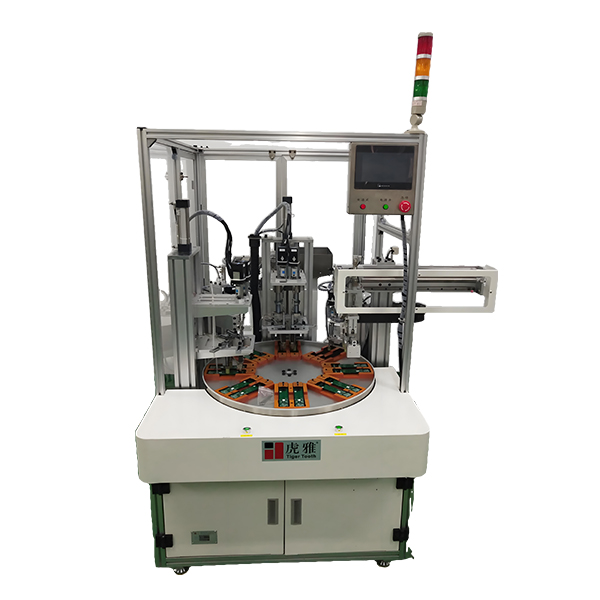News
News

In the world of modern manufacturing and assembly, the automatic screw feeder machine has emerged as an essential tool for enhancing efficiency and precision. Understanding the factors that influence the price of these machines is crucial for businesses looking to invest wisely. This article delves into the various aspects that affect the pricing of automatic screw feeder machines, providing a comprehensive guide to help you make an informed decision.

The type and specifications of the automatic screw feeder machine play a significant role in determining its price. Machines vary based on their design, capacity, and functionality. For instance, high-end models with advanced features such as multi-axis capabilities, high-speed operation, and versatile screw compatibility tend to be more expensive compared to basic models designed for simpler tasks.
The materials used in constructing the machine significantly impact its cost. Machines built with high-grade, durable materials such as stainless steel and high-strength alloys are typically priced higher due to their longevity and reliability. Additionally, the precision and quality of the manufacturing process contribute to the overall cost, with more precisely engineered machines commanding higher prices.
The level of automation integrated into the machine is another critical factor. Fully automated machines equipped with sophisticated sensors, programmable logic controllers (PLCs), and user-friendly interfaces usually have higher price tags. These features enhance the machine's efficiency, accuracy, and ease of use, making them a valuable investment for high-volume production lines.
The reputation of the brand and manufacturer also influences the price. Established brands known for their quality and reliability often charge a premium for their products. Investing in a reputable brand can provide peace of mind regarding the machine's performance, customer support, and availability of spare parts.
Customization options and additional features tailored to specific applications can increase the cost of an automatic screw feeder machine. Custom-built machines designed to meet unique production requirements or equipped with special features like screw counting, error detection, and integration with other automated systems typically come at a higher price.
The level of after-sales support and warranty offered by the manufacturer is another crucial consideration. Machines that come with comprehensive warranties and robust customer support services may be priced higher. This support can be invaluable in minimizing downtime and ensuring smooth operation, ultimately contributing to cost savings in the long run.
The price of automatic screw feeder machines can vary widely depending on the aforementioned factors. Basic models can start from a few thousand dollars, while advanced, fully automated systems can cost tens of thousands of dollars. Keeping abreast of market trends, such as advancements in automation technology and shifts in manufacturing practices, can help businesses anticipate pricing changes and make strategic purchasing decisions.
Investing in an automatic screw feeder machine involves considering multiple factors that influence its price. By understanding the impact of machine type, material quality, automation level, brand reputation, customization options, and after-sales support, businesses can choose a machine that not only fits their budget but also meets their production needs efficiently. Whether opting for a basic model or a high-end system, the key is to balance cost with the desired level of functionality and reliability.
Copyright © Shenzhen City Huya Technology Co., Ltd. All Rights Reserved Sitemap | Powered by XiaoLiang